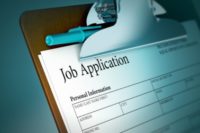 Of course there is much chatter about the upcoming presidential elections. According to a recent ISHN magazine poll, safety profession will overwhelmingly vote for Mitt Romney.
Of course there is much chatter about the upcoming presidential elections. According to a recent ISHN magazine poll, safety profession will overwhelmingly vote for Mitt Romney.
Here are the views of several business leaders in Texas, courtesy of the Waco Times-Record.
If the United States is to improve its business and economic climate, the next administration must cut regulatory red tape, balance the federal budget and give industry a clear picture of its future tax obligations.
They were not asked to choose between President Barack Obama or Republican challenger Mitt Romney. Rather, they agreed to weigh in on what direction they think the country needs to take to create jobs and shake off the remnants of the recession.
Scott Bland, president of the Heart of Texas Builders Association, said unless and until policies crystallize, either under Obama or Romney, businesses will remain skittish about expanding, investing in new equipment or hiring more than a handful of employees, if they hire at all. The economy will have an anemic growth rate of slightly more than 1 percent, “and we could fall back into recession.”
“Congress is so gridlocked, nothing is getting done,” Bland said. “The president is not able to pass any kind of budget and he’s not getting any movement on what we’re going to do with the Bush tax cuts.
“With no clear indication of what we’re doing, businesses freeze.”
Despite the economy’s drawbacks, Bland said he senses consumer confidence is improving and the housing industry is seeing better days because of record low interest rates that make this an ideal time to buy homes.
Chris Gutierrez, founder of Texas Commercial & Industrial Real Estate Services Inc., has the opportunity to work with industrial heavyweights. He said most are concerned about rising taxes to support federal spending.
“Most of my clients are entrepreneurs who strive to grow their business and provide employees with wages that can support their families,” he said. “However, to do that their companies need to remain profitable and viable. They worry that additional taxes would reduce their profitability and reduce the number of employees they could keep.”
Carey Hobbs, founder and president of Hobbs Bonded Fibers, agreed that many businesses have become paralyzed by uncertainty that may or may not end in the wake of the presidential election on Nov. 6.
“Many corporations have acknowledged they are sitting on billions of dollars,” he said. “They are reluctant to spend the money because they don’t know what taxes or regulators are going to do.”
He said federal regulatory agencies, such as the Occupational Safety and Health Administration and the Environmental Protection Agency, “need to be called off to some degree.”
“We have had some experiences with these people the last few years,” said Hobbs, whose plant OSHA cited for safety violations in 2005 and 2011 and was fined this year after an employee lost an arm in a machine.
“There is a need for these agencies, but they seem more interested in punitive action than in constructive help to keep employees safe or the environment clean,” said Hobbs, who employs about 200 people.
Curtis Cleveland, vice president of Central Texas Iron Works, said the U.S. needs to become less dependent on foreign oil and to re-evaluate regulations placed on coal- and nuclear-fueled power plants.
“There are many power plants planned and designed that are not being built because the new environmental regulations have made the projects not economically feasible,” Cleveland said. “I think there is a happy medium that can satisfy everybody, but something has to be done about the costs associated with these rules.”
Said Wes Bailey, president of Bailey Insurance & Risk Management, “I would say it is critical for the next administration to attack our deficit spending. The annual deficit is atrocious, more than $1 trillion a year, and is a terrible drain on our economy.
“We need not only to find ways to cut spending, but to find a way to owe less money to China.”
China is the U.S.’s largest foreign creditor, owning $1.15 trillion of our debt.
Bailey said stimulating the economy “is easier said than done,” and he does not pretend to have all the answers.
But he said business should be freed to flourish and create jobs with a minimum of government interference.
He said consumers need to do their part by buying products made in America.
Jennifer Wilson, who owns Spice Village in downtown Waco that has grown to 88 shops, said an economic swing that helped the general public would benefit retailers such as herself.
Jobless people who find work and employees who receive raises can “splurge” at Spice Village and buy items they would like but don’t necessarily need, she said.
“I do see improvement in the economy,” Wilson said. “It was frantic here last weekend, which was Parents Weekend at Baylor, and we’re up in sales every month this year from the same month last year.”





